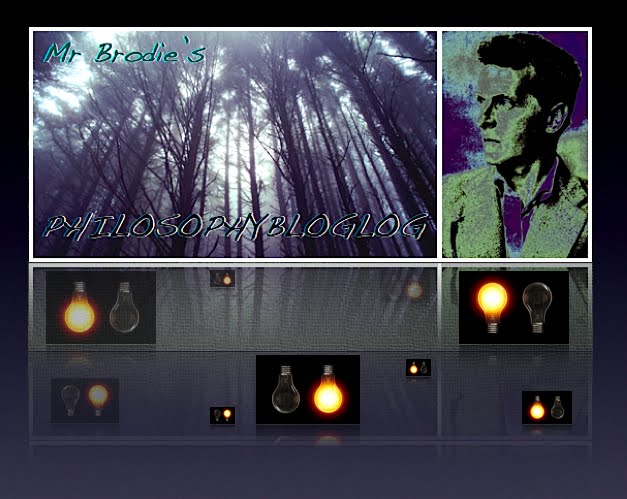I'm back on line and broadcasting from hick country!
Hope you had a nice Christmas and will have a very happy and philosophically successful New Year!
Here's the happy homework in case you haven't done it yet.
1. Explain Kant’s claim that ‘synthetic a priori’ knowledge is possible. (plan below)
Hope you had a nice Christmas and will have a very happy and philosophically successful New Year!
Here's the happy homework in case you haven't done it yet.
1. Explain Kant’s claim that ‘synthetic a priori’ knowledge is possible. (plan below)
2. Explain what is meant by a priori and outline one reason why the a priori is philosophically significant. (15 marks)
Here is the mark scheme to help you so your answer should be perfect!
Expect the following definitions:
• A proposition or truth is a priori if it is known prior to and/or independently of experience.
• A proposition or truth is a priori if it cannot be refuted without contradiction.
• A proposition or truth is a priori if it is justly known through understanding one or more self-evident propositions. Descartes notion of ‘clear and distinct ideas’ may be used to illustrate the notion of self-evidence.
And one of the following reasons why the a priori is philosophically significant:
• A priori propositions or truths are philosophically significant because they are immune from sceptical doubts regarding the senses. Descartes’ methodological doubt and his deduction of the cogito could be used to illustrate this point.
• A priori propositions or truths are philosophically significant because they constitute what we know innately and therefore are crucial in explaining capacities we possess that would otherwise be inexplicable.
• A priori propositions or truths are philosophically significant because of what they reveal about the necessary structure of (our experience of) the world.
Unless a candidate answers both parts of the question they cannot achieve full marks.
3. ‘All ideas derive from the sense experiences which they copy.’ Discuss. (30 marks)
Expect the following discussion points:
• The claim sets a clear limit on thought and allows us to proceed without getting
distracted by empty metaphysical speculation.
• The claim reflects our experience of learning, where new ideas are acquired as we encounter new experiences.
• At least some ideas, (eg Hume’s example of a missing shade of blue, ‘4’) do not appear to derive from sense experience.
• Some ideas are best regarded as innate, (eg a Euclidean straight line, God).
• If all my ideas derive from my sense experience and all your ideas derive from your sense experience it follows that we can never share the same idea as we cannot have the same sense experience – reductio ad absurdum.
• If the claim is presented as a factual hypothesis then there is insufficient evidence to justify it.
• The theory implies that thinking involves the manipulation of mental images, sounds, smells, etc. This is psychologically implausible.
• The theory fails to appreciate the active power of the mind in shaping our experience.
• The theory inevitably degenerates into a solipsistic scepticism that it hasn’t got the resources to escape from.
• The theory has problems accounting for general terms or universals.
• The term ‘idea’ is ambiguous, (eg is ‘the cat sat on the mat’ one or more idea(s)?).
Candidates could usefully refer to individual philosophers, (eg. Hume, Locke,
Russell, Descartes) in order to illustrate their discussion.
























No comments:
Post a Comment